Rezarta Islamaj Doğan
Assigning Species Information to Corresponding Genes by a Sequence Labeling Framework
May 08, 2022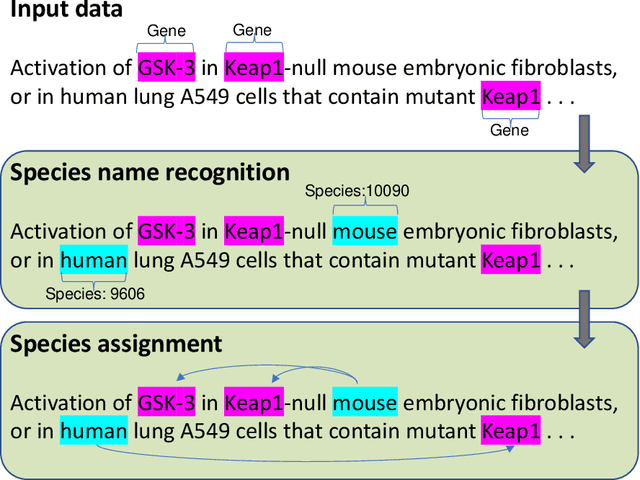
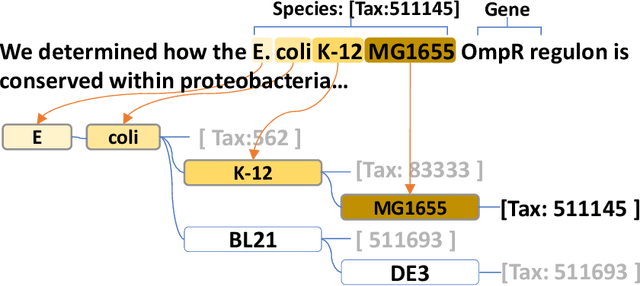

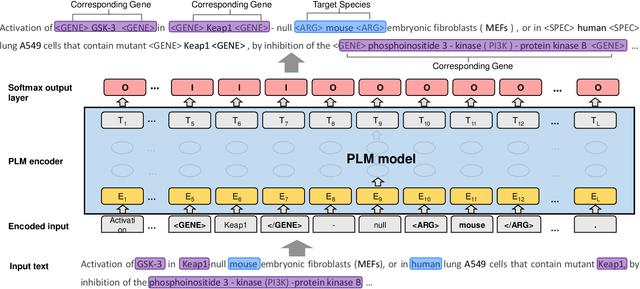
Abstract:The automatic assignment of species information to the corresponding genes in a research article is a critically important step in the gene normalization task, whereby a gene mention is normalized and linked to a database record or identifier by a text-mining algorithm. Existing methods typically rely on heuristic rules based on gene and species co-occurrence in the article, but their accuracy is suboptimal. We therefore developed a high-performance method, using a novel deep learning-based framework, to classify whether there is a relation between a gene and a species. Instead of the traditional binary classification framework in which all possible pairs of genes and species in the same article are evaluated, we treat the problem as a sequence-labeling task such that only a fraction of the pairs needs to be considered. Our benchmarking results show that our approach obtains significantly higher performance compared to that of the rule-based baseline method for the species assignment task (from 65.8% to 81.3% in accuracy). The source code and data for species assignment are freely available at https://github.com/ncbi/SpeciesAssignment.
Multi-label classification for biomedical literature: an overview of the BioCreative VII LitCovid Track for COVID-19 literature topic annotations
Apr 20, 2022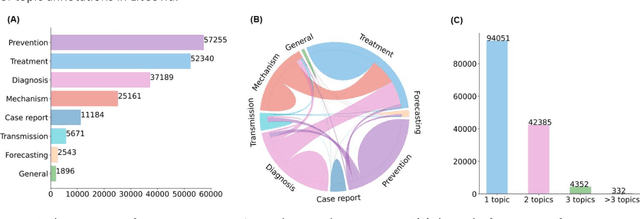


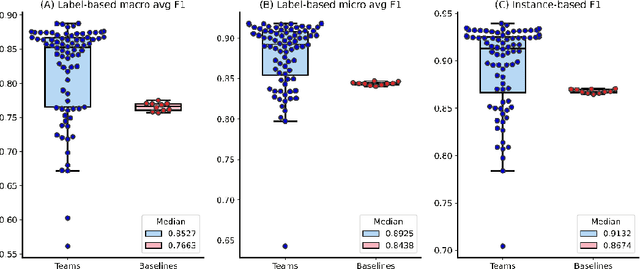
Abstract:The COVID-19 pandemic has been severely impacting global society since December 2019. Massive research has been undertaken to understand the characteristics of the virus and design vaccines and drugs. The related findings have been reported in biomedical literature at a rate of about 10,000 articles on COVID-19 per month. Such rapid growth significantly challenges manual curation and interpretation. For instance, LitCovid is a literature database of COVID-19-related articles in PubMed, which has accumulated more than 200,000 articles with millions of accesses each month by users worldwide. One primary curation task is to assign up to eight topics (e.g., Diagnosis and Treatment) to the articles in LitCovid. Despite the continuing advances in biomedical text mining methods, few have been dedicated to topic annotations in COVID-19 literature. To close the gap, we organized the BioCreative LitCovid track to call for a community effort to tackle automated topic annotation for COVID-19 literature. The BioCreative LitCovid dataset, consisting of over 30,000 articles with manually reviewed topics, was created for training and testing. It is one of the largest multilabel classification datasets in biomedical scientific literature. 19 teams worldwide participated and made 80 submissions in total. Most teams used hybrid systems based on transformers. The highest performing submissions achieved 0.8875, 0.9181, and 0.9394 for macro F1-score, micro F1-score, and instance-based F1-score, respectively. The level of participation and results demonstrate a successful track and help close the gap between dataset curation and method development. The dataset is publicly available via https://ftp.ncbi.nlm.nih.gov/pub/lu/LitCovid/biocreative/ for benchmarking and further development.
 Add to Chrome
Add to Chrome Add to Firefox
Add to Firefox Add to Edge
Add to Edge